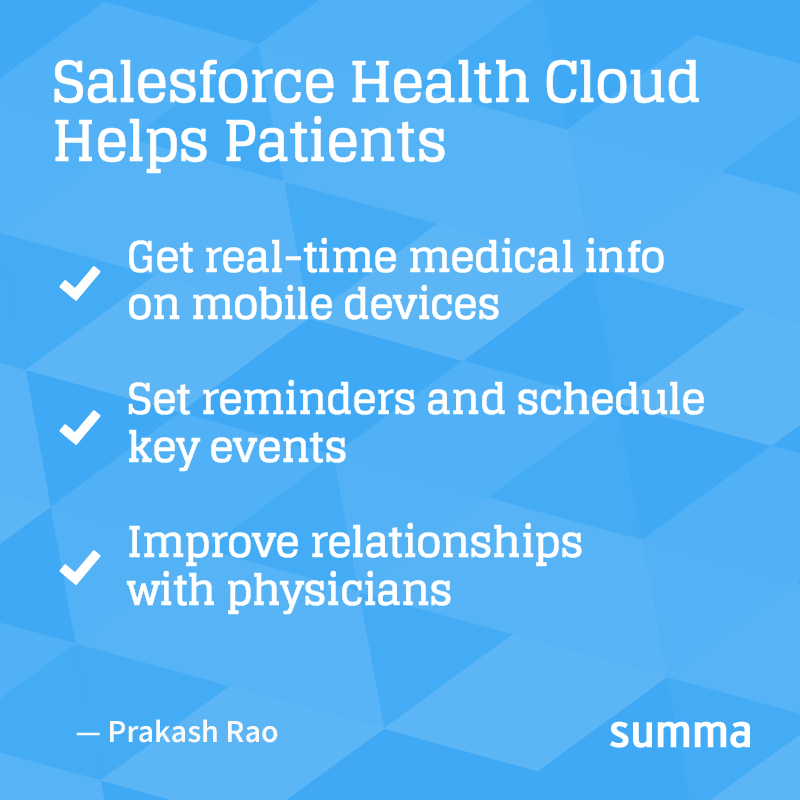This month, Salesforce introduced cloud solutions in two conservative and heavily regulated industries: finance and health care. Neither has a history of early technology adoption. Entry barriers are high and markets are hard to penetrate.
But Salesforce took up the challenge to disrupt the health care space and set a trend. The company saw that millennials are looking for more from their primary health care services--from providers, to payee, to 3rd party vendors who take vitals.
Patients Gain Convenience and Collaboration
- Supports mobile and smart devices
- Provides access to Knowledgebase, allows patients to connect with SMEs and ask questions in private communities
- Collaboration tool facilitates the dialog between the patient and caregiver
- Portal captures and presents patient profile information to caregivers
- Allows patient to set alerts, send private messages, reminders and schedule key events
- Improves patient relationship with their physicians
- Confidence in Health Cloud as it is built on the successful Service Cloud platform
Health Cloud Checks Many Security and Compliance Boxes
- Supports HIPAA, including 45 CFR – 164.314 and 164.504 (e)
- Complies with e-PHI
- Provides monitoring capability on data flowing through the system
- Ability to establish field level audits
- Facilitates data retention and archival policy
- Platform encryption available, but limited to 128 bit
- Solution Integrators provide services to connect with boundary systems
- Third party solutions (Smarsh, Bloomberg BNA and Proofpoint) provide archiving platform capability for all communication needs

Salesforce Health Cloud Part of the Solution
HIPAA compliance will never be solved by a single piece of technology. It is an aggregation of technology, processes, user training, auditing and culture. Salesforce may be part of the solution. It adds another option to standard Practice Management applications such as Epic and Cerner.
Regardless of technology, each health care service is responsible for its own compliance and will have additional work to ensure it. Providers should have serious questions about data security, data storage in the cloud, data encryption, key management and handshakes between different application systems. The answers for each provider boil down to their trust in the solution, their priorities, and appetite for joining the wave of change that is taking place in health care industry.




